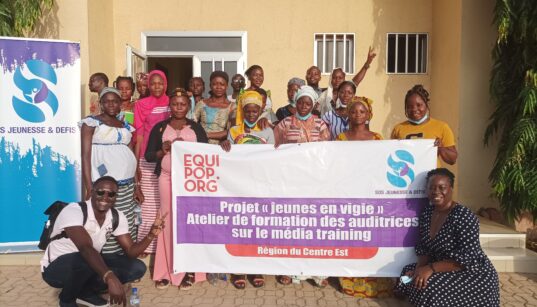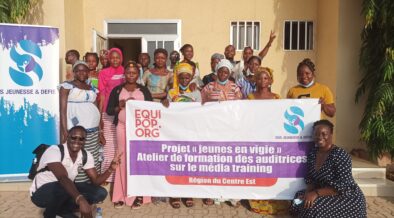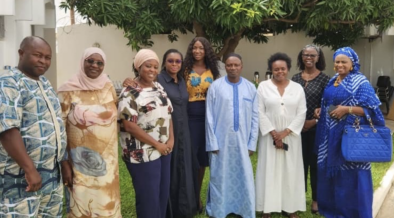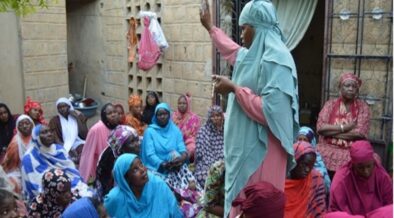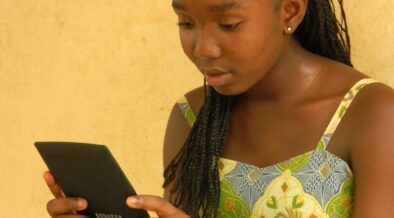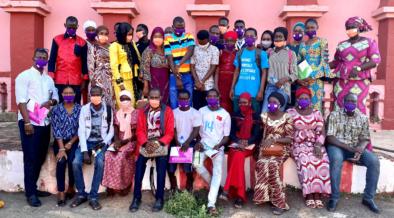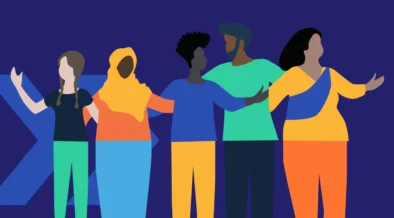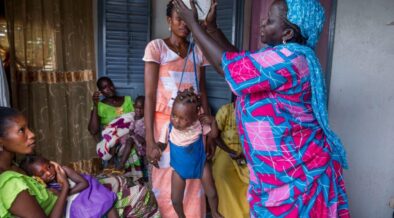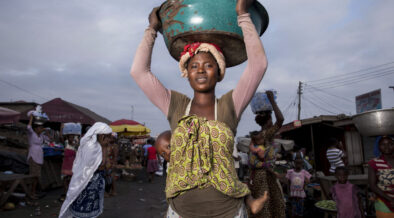West Africa
Our Work in West Africa
In the past, there has been a tendency across West Africa for each country to conduct their own family planning (FP) pilot before making bold policy improvements such as authorizing task-sharing or self-injection of the injectable contraceptive DMPA-SC. This impression that each country’s operating environment is unique enough to require its own pilot has for many years been enforced by a lack of information sharing beyond formal end-of-project reports that take many years to appear and are not written as how-to guides to start a program. A series of similar pilots repeated in one country after another is one example of how a lack of efficient information sharing can slow progress and waste time and funds, ultimately affecting quality of care.
The Knowledge SUCCESS West Africa team addresses these challenges by using knowledge management (KM) tools and techniques to improve documentation, and information sharing, use, and dissemination, to make programs more effective and promote best practices and lessons learned. Appreciation for this model of KM as a tool to achieve a country’s FP goals is increasing at national and regional levels.

FP/RH Documentation
We document and share lessons from FP/RH program implementation, in collaboration with FP/RH partners in West Africa.

CIP support
We support Ministries of Health to integrate KM activities and indicators into their new costed implementation plans (CIPs).

KM Advocacy
We collaborate with regional leaders, like the Ouagadougou Partnership, to promote and use KM tools as a means to advance FP goals in the region.

KM Skills Advancement
We conduct KM trainings in response to demand from partners who want to more effectively use the latest FP/RH knowledge, tools, and guidelines.
Get West Africa Updates
Sign up for reminders about events and new content from the West Africa region. Please check the box if you wish to receive communications in French.
Explore Content from West Africa
We work primarily in USAID family planning priority countries. Is your country not listed here? Contact us. We’d be happy to explore a potential collaboration.

In April 2024, United Nations Population Fund hosted the ICPD30 Global Youth Dialogue in Cotonou, Benin. The dialogue provided a unique platform for youth activists, policymakers, and regional and intergovernmental organizations to collaborate on sexual and reproductive health and rights, education, human rights, and gender equality.

In April 2024, United Nations Population Fund hosted the ICPD30 Global Youth Dialogue in Cotonou, Benin. The dialogue provided a unique platform for youth activists, policymakers, and regional and intergovernmental organizations to collaborate on sexual and reproductive health and rights, education, human rights, and gender equality.

In April 2024, United Nations Population Fund hosted the ICPD30 Global Youth Dialogue in Cotonou, Benin. The dialogue provided a unique platform for youth activists, policymakers, and regional and intergovernmental organizations to collaborate on sexual and reproductive health and rights, education, human rights, and gender equality.
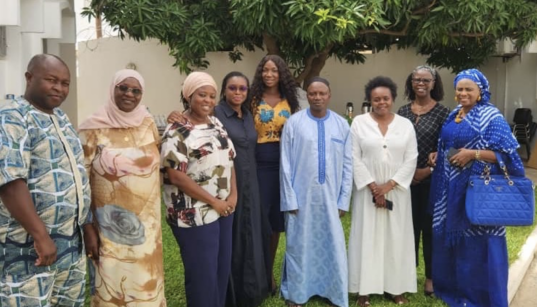
Self-care for sexual and reproductive health has advanced significantly in the last two years, following the publication of the World Health Organization's (WHO) self-care guidelines in 2018, recently updated in 2022. According to Senior Technical Advisor for Self-Care Sarah Onyango, remarkable progress has been made at national levels, with several countries developing and adopting national self-care guidelines.
Our website has a robust search function that can help you find what you need. The search bar ![]() is located near the right corner of the page.
is located near the right corner of the page.
West Africa Resources
Meet the West Africa Team
Pour nos collègues francophones : veuillez noter que tous les membres de l’équipe d’Afrique de l’Ouest parlent français.

Aissatou Thioye
Aissatou is the West Africa Knowledge Management and Partnerships Officer for Knowledge SUCCESS and a member of FHI 360’s Research and Technical Unit. She is based in Senegal.
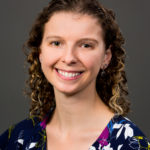
Alison Bodenheimer Gatto
Alison is the Technical Advisor for Knowledge SUCCESS and a member of FHI 360’s Research and Technical Unit. She is based in the U.S.

Sophie Weiner
Sophie is a Program Officer II at the Johns Hopkins Center for Communication Programs. She is based in the U.S.

Thiarra Diagne
Thiarra is a technical officer for Knowledge SUCCESS at CCP and a program assistant for Alive and Thrive at FHI360. She is based in Senegal.
Meet Our West Africa KM Champions
KM Champions drive the KM for FP/RH agenda in their own organizations and countries, within USAID family planning program countries.
Knowledge SUCCESS, in collaboration with the Ouagadougou Partnership Coordination Unit, is supporting a cohort of KM Champions to strengthen knowledge exchange within and between priority public health countries in West Africa.
Opportunities
Please contact us if you would like to contribute content to our website, or if you:
- Have a challenge related to learning, knowledge sharing, or collaboration.
- Are interested in learning how knowledge management can help you achieve your goals and support strategic investments.
- Have feedback on what you’d like us to feature in our newsletter and technical content.
Upcoming West Africa Events
Our team hosts webinars on relevant FP/RH topics for the West Africa region. We also host trainings on knowledge management approaches and tools.


